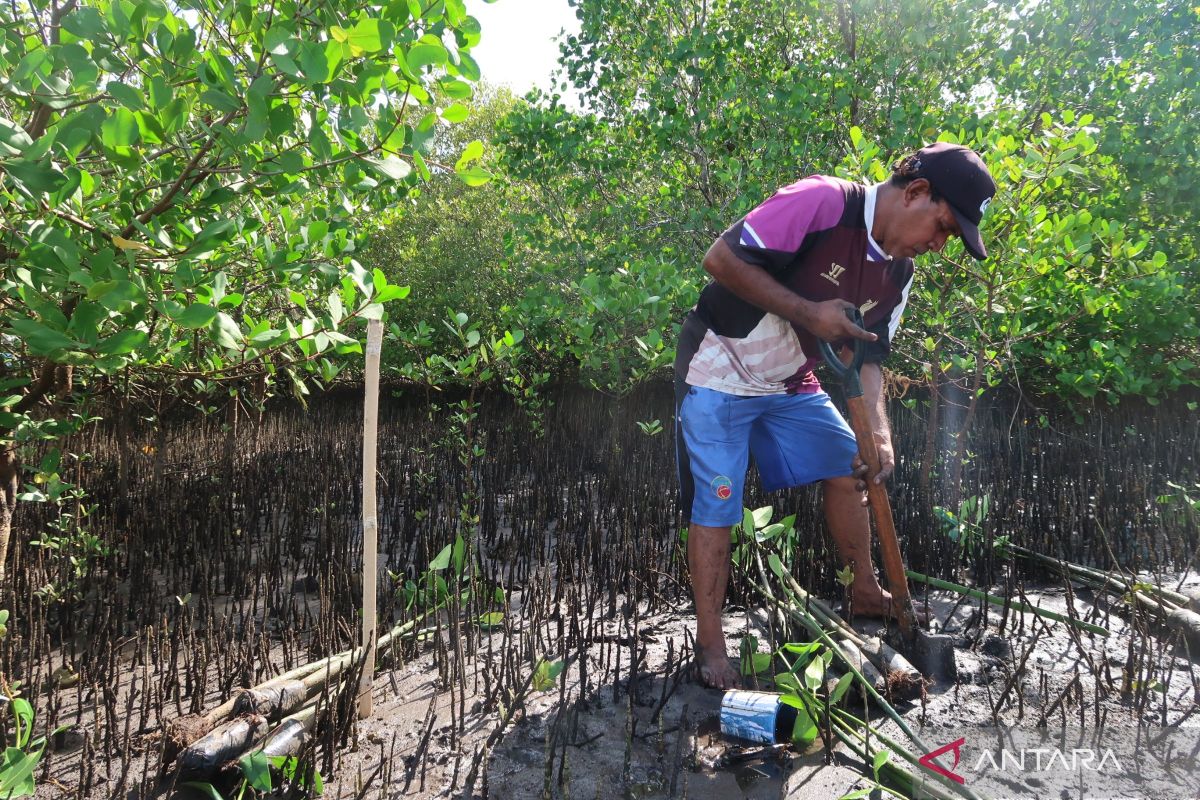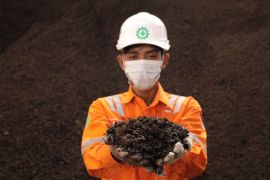"The immediate steps we are taking together with the World Bank and related ministries and institutions, including the Indonesian Army, today are to focus on rehabilitating 75,000 hectares and conserving 400,000 hectares of mangroves," he said on Instagram on Monday.
The step is part of a larger plan to rehabilitate 600,000 hectares of mangroves in coastal areas, he added.
The significant potential of mangroves to absorb higher levels of carbon naturally will be utilized for the green economic transformation and lead to blue carbon generation, which is more environmentally friendly and sustainable, he said.
This is important considering that Indonesia has committed to controlling global climate change, and mangrove rehabilitation is expected to support the achievement of the emissions reduction target outlined in the Nationally Determined Contributions (NDC) document.
"I see that the success of this program will be achieved if the integration of all stakeholders is able to empower communities around the coast," Pandjaitan said.
In this way, the mangrove ecosystem on the Indonesian coast will not only act as carbon storage but also as an alternative source of livelihood for communities residing around the mangrove ecosystem, he stated.
He made the statement in connection with the European Union's Copernicus Climate Change Service (C3S) records, which show that for the past 12 months, the Earth's temperature has been 1.5 degrees Celsius warmer compared to the level of the pre-industrial era (1850–1900).
This has led to the emergence of a number of natural phenomena that have changed several parts of the Earth so that they are no longer the same as they were several centuries ago.
For instance, an increase of 1.5 degrees Celsius in global temperatures can cause major losses to ecosystems through phenomena such as heat waves, droughts, floods, and water scarcity, which a number of people will encounter in the future.
"This is a 'wake-up call' for all of us to make mitigation efforts to reduce carbon emissions," Pandjaitan said.
Related news: Govt urges youths to plant more trees to handle climate change
Related news: President asks fishers to plant mangroves in coastal areas
Translator: Putu Indah Savitri, Cindy Frishanti Octavia
Editor: Anton Santoso
Copyright © ANTARA 2024












